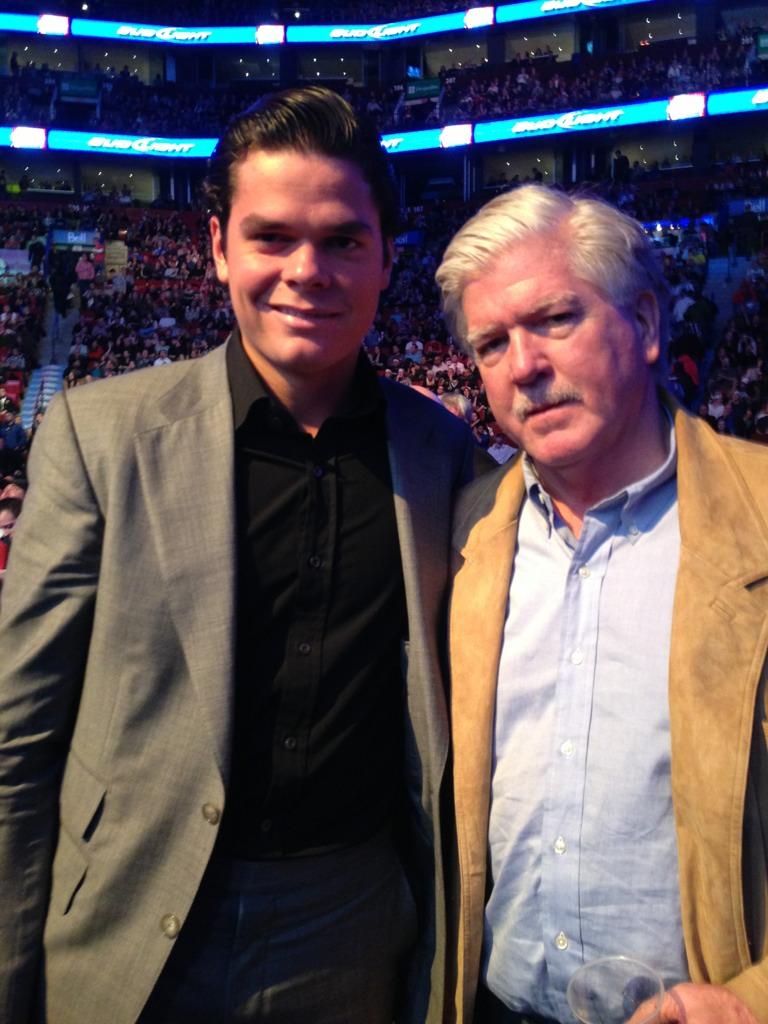November 29, 2012
1,461 Days of Burke
Four hard years.
Can't see how else Brian Burke would describe his days in Toronto since he stepped up to the podium on Nov. 29, 2008 and accepted the job as president and general manager of the Maple Leafs.
It feels like it's been more of a sentence than an appointment to a high-paying job.
Hopes were incredibly high that day at the Air Canada Centre. Just 17 months earlier, Burke had lifted the Stanley Cup with the Anaheim Ducks. He seemed the perfect fit.
And still may be, depending on your point of view.
Burke knows his reputation has taken a hit in these past four years. He has stuck his neck out time and time again, sometimes creating the issue and then sticking his neck out. The incredibly frustrating thing for him now is to have to sit by helplessly during the NHL lockout, unable to do anything to prove he's done many more right things during his tenure in Toronto than wrong ones.
To a large extent, he knew what he was getting into. His rationale for making the Phil Kessel trade was that if he didn't get things moving with the Leafs in three years, there would be calls for his neck. And he was right.
He has fought with Don Cherry, fought with Francois Allaire, fought with many members of the media. He has fired Ron Wilson, traded Tomas Kaberle, testified against the New Jersey Devils and stolen Jake Gardiner and Joffrey Lupul.
He organized a team that won silver for the U.S. at the 2010 Olympics. He has given his time and money to countless charitable contributions and struggled through some extremely difficult personal issues, including the death of his son Brendan in a car crash.
My goodness, a heck of a lot has happened in four years. A playoff berth hasn't, however, and that remains the dark shadow over Burke as he waits to see if he'll even get a chance to be the architect of a Leaf entry in next spring's post-season tournament.
After four years, this seems to be the essence of Burke's time in Toronto; what he has said has hurt him more than what he has actually done.
What he has done is rebuild from the ashes, construct a championship-quality farm team, build with youth, compile an impressive list of draft choices and played the salary cap game well, making sure the Leafs weren't entangled with any of those nasty, double-digit year contracts. While the Kessel deal haunts him, he has made more good deals than bad ones. He has compiled a blueline of the future with Gardiner, Stuart Percy, Morgan Rielly and Matt Finn and added two top 10 NHL scorers in Kessel and Lupul.
The Dion Phaneuf deal was a steal, but Phaneuf has had an uneven run as captain. The team isn't the big, physical team many believed it would be. Nazem Kadri, Burke's first top pick in Toronto, has yet to make an imprint at the NHL level. Goaltending has been a constant concern. Wilson stayed too long as coach.
But what has hurt Burke the most has been the things he's said and promised, from vowing "truculence and belligerence" to vowing not to fire Wilson in mid-season, from calling James Reimer the "real deal" to, at least in the minds of many, guaranteeing the Leafs would be a playoff team by now.
It took the Kings nine years to build a Stanley Cup winner, so it's reasonable to say after four years the Leafs are on track to constructing a contending organization. But rather than examine where the club actually is, many focus on Burke's words, his penchant for hyperbole and overstatement to make a bold point, and those words have tripped him up time and time again.
Given what the man has gone through with his family, I'm amazed he's able to get up in the morning and function, let alone run the hockey team in this hockey-intense market. He's never asked any special consideration for that, and none has been given by most.
From October to January last season, the Leafs were in a strong playoff position. When they collapsed in February and ultimately missed the post-season, the blame was heaped on Burke, not the players. Fair enough. That comes with the job.
His future is now more complicated with new ownership having taken over. It's always a little trickier convincing the people who didn't hire you as opposed to those who did. What the Teachers Pension Fund loved about him may not be what Bell and Rogers are looking for in a hockey boss.
His future in Toronto is as cloudy four years after he arrived as the immediate future of the league itself. That said, it's also clear that when it all starts up again, he's got to win. Love him or hate him, no one would disagree on that.
http://thestar.blogs.com/thespin/2012/11/1408-days-of-burke.html
I think Damian Cox has nailed it. I find it hard to disagree with him on anything he said in this article.






